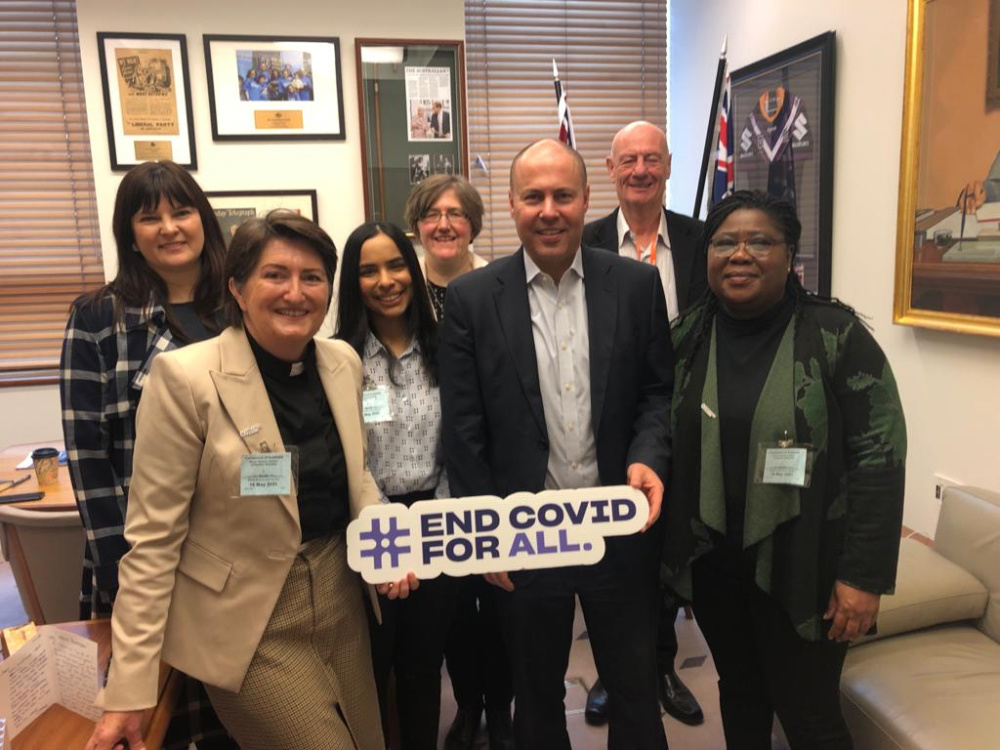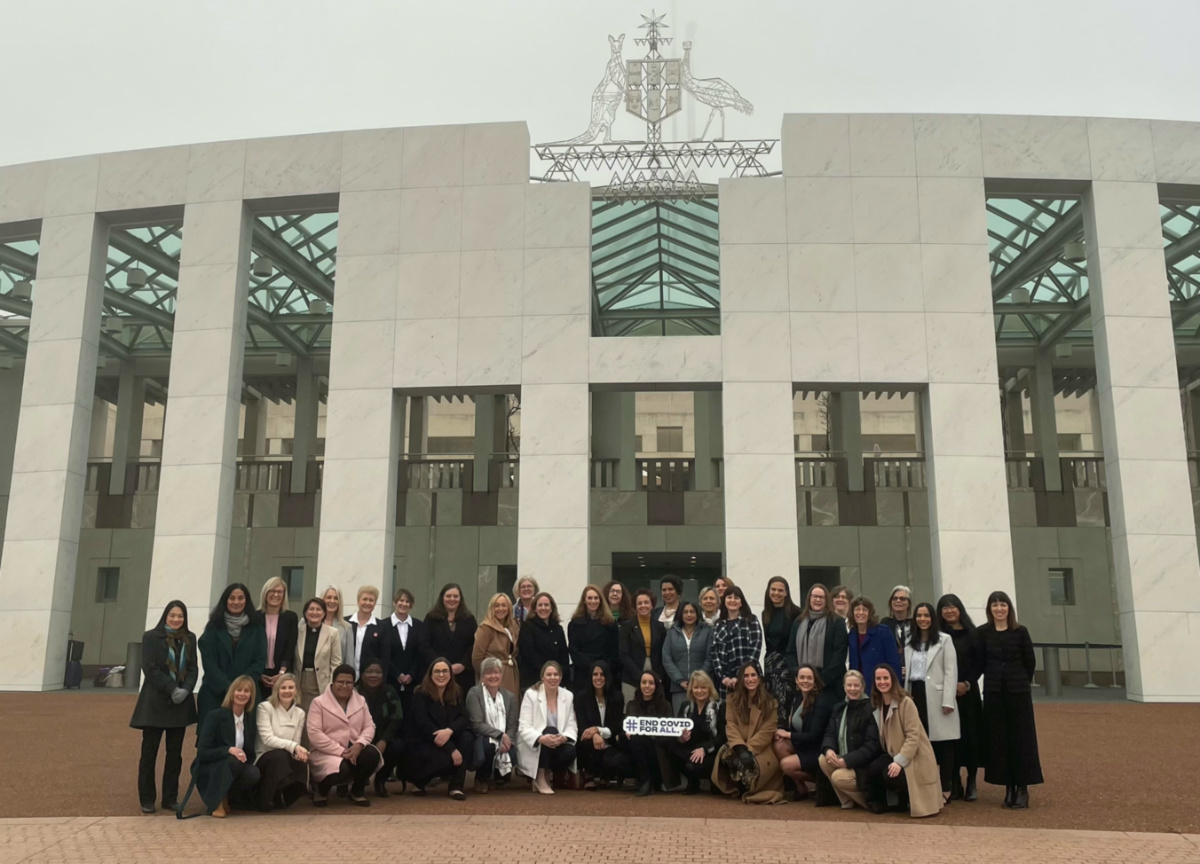Sydney, Australia
A peak Australian Christian advocacy group has lobbied federal politicians for a permanent $A1.3 billion increase in the foreign aid budget to help developing nations fight COVID-19.
Micah Australia, which represents all major Christian denominations in Australia, have warned that 20 years of gains to alleviate poverty, famine and conflict in poorer neighbouring countries could be be wiped out due to the continuing pandemic and poor vaccination rates.
It said that it would be “morally indefensible” for Australia not to increase aid for vaccines, particularly as data from the Australian Bureau of Statistics shows the country’s economic recovery has progressed to be above pre-pandemic levels.

Representatives of Micah Australia meet with Federal Treasurer Josh Frydenberg in Canberra on 16th June. PICTURE: Supplied.
Forty women leaders from Australian churches and Christian organisations met with politicians in Canberra this week, including Treasurer Josh Frydenberg and Opposition Senator Penny Wong, drawing their attention to the issue of global vaccine equity and urging them to adjust Australia’s global aid response to poorer nations as the pandemic evolves.
“With worldwide deaths reaching over 10,000 per day, this pandemic is far from over, with the worst now hitting low and middle-income countries in South America and Asia, and fears rising at the possibility of a more contagious third-wave in the African continent,” spokeswoman Rev Dr Melinda Cousins, director of Ministries for the Baptist Churches of South Australia, said in a statement.
“At the same time, a vaccine access gap has rapidly opened up between richer and poorer nations, which is not only morally indefensible, but an inequity that is perpetuating the pandemic.”
The leaders say vaccine inequality has slammed the brakes on gains made in the past 20 years to reduce poverty, famine, poor health outcomes and marginalisation of vulnerable groups, and while Australia’s temporary measures of more than $A1.3 billion in additional aid to its neighbours was a good start, “as the virus evolves, so too must our response”.
“What we were asking the politicians was for the temporary increase to be made permanent,” Dr Cousins said.
“We have shown we can do it and our work is effective. The question is, how can we make this temporary increase permanent?”
By increasing aid, equipment, resources and assistance, Australia also would be helping its own economic recovery, by building stronger ties with struggling neighbours, and mitigating the possibility of increased tensions where conflict, famine and need exist.
Dr Cousins said more than one billion people were lifted out of extreme poverty in the last 20 years, but COVID-19 has “thrown the brakes on this, and is now jamming it into reverse”, with an additional 150 million people expected to be pushed into poverty by the end of 2021.
“An additional 10,000 children each month are dying as a result of COVID-19 related hunger,” she said.

The Micah Australia group at Parliament House. PICTURE: Supplied.
Australia’s temporary boost to its aid budget also did not equate to a sustained commitment to increased generosity” and its overall international aid budget continued to slide relative to its Gross National Income, from 14th in 2015, to 21st in 2020, out of the 29 richest nations in the world.
“We know this pandemic doesn’t end for anyone, until it ends for everyone,” Dr Cousins said.
“As the virus is allowed to mutate in lower income countries with low vaccination rates, it risks boomeranging back to Australia, jeopardising both our health security and economic recovery.”
Specifically, Micah sought help from the federal parliament to:
• Continue to increase the ambition and level of Australia’s investment and vaccine sharing contributions to help end the pandemic faster;
• Continue to respond to outbreaks with emergency assistance, including personal protective equipment, oxygen, and Australian expertise;
• Provide a $A150 million famine prevention package to address food security and child malnutrition in countries at high risk of famine, particularly in Africa and the Middle East;
• Continue responding to the changing needs of our neighbours with further targeted support and recovery packages; and
• Commit to a new base Official Development Assistance budget of $A4.5 billion in recognition of the long-term impact COVID-19 will have on our neighbours.
“My sense [is], and the people we represent say we can be more generous than we have been. We will lose this momentum if we don’t get on top of COVID-19.” Dr Cousins said.
“Our future is interconnected to the word’s poor. The potential loss of momentum is a real challenge.”




